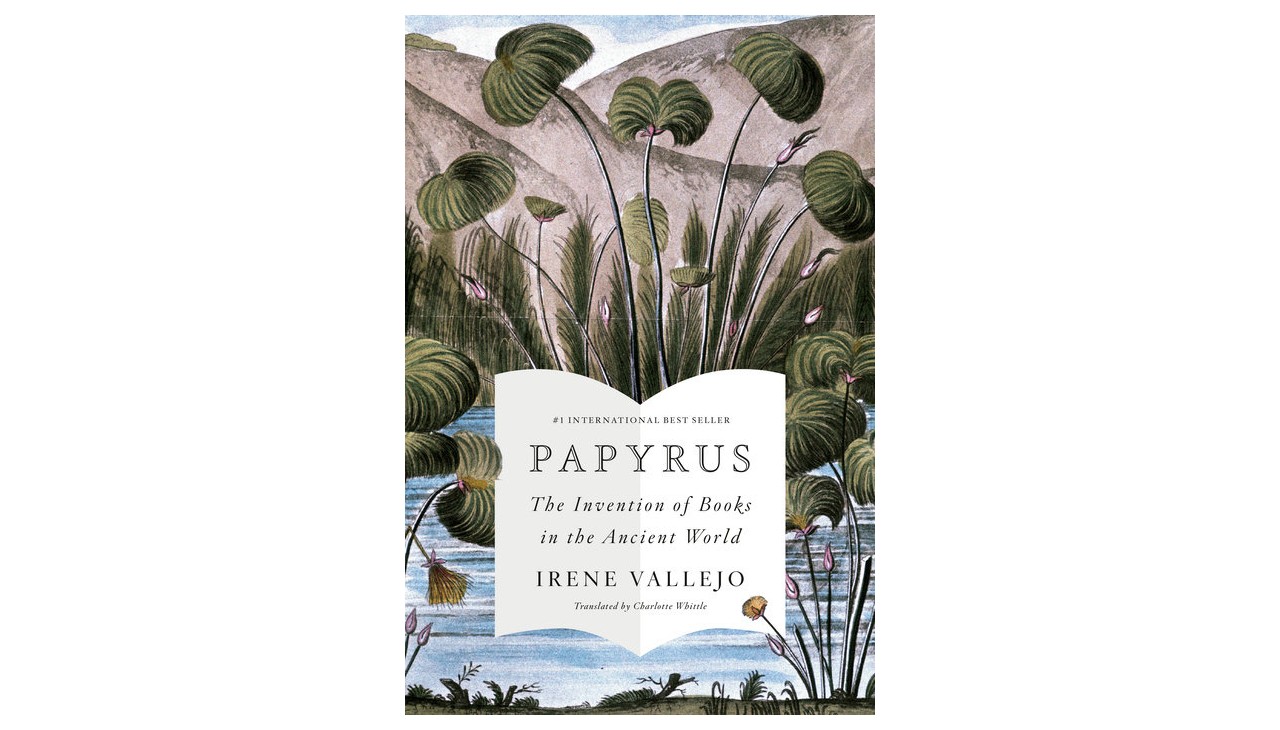
A Journey to the Origins of the Book
In 'Papyrus', Spanish author Irene Vallejo tells the story of the invention of the book, from oral tradition to scrolls to codices.
Until 2019, Spanish author Irene Vallejo - PhD in Classical Philology from the universities of Zaragoza, Spain and Florence, Italy- had published novels, compilations of articles, a couple of children's books and some academic texts. But then she published "El infinito en un junco", a 452-page essay on the history of books, from the ancient world to the present day, and Vallejo managed what seemed impossible: to turn an essay on something as apparently "uncommercial" as the history of books into a sales phenomenon.
The book, written at times as an adventure novel, begins with a group of horsemen riding through Greece on horseback, with the mission of fulfilling the order of the Pharaoh of Egypt: to build the library of Alexandria, where all the wisdom of the world at that time was to be gathered. In addition to the ancient world, Vallejo talks about translations, the figure of the author, the classics, the possible end of books: everything fits in this essay that has accumulated several awards, from the Ojo Crítico de Narrativa 2019, the Librerías Recomiendan 2020 and the Premio Nacional de Ensayo 2020. The work that already has 47 editions in Spain and is expected to be translated into 35 languages.
Just this month it has just been published in English for the U.S. market under the title 'PAPYRUS: The Invention of Books in the Ancient World' (Knopf, 2022), translated by Charlotte Whittle. Vallejo evokes the great mosaic of literature in the ancient world from Greece’s itinerant bards to Rome’s multimillionaire philosophers, from opportunistic forgers to cruel teachers, erudite librarians to defiant women, all the while illuminating how ancient ideas about education, censorship, authority, and identity still resonate today. Crucially, Vallejo also draws connections to our own time, from the library in war-torn Sarajevo to Oxford’s underground labyrinth, underscoring how words have persisted as our most valuable creations.
RELATED CONTENT
"It was said that traditional books would be replaced by electronic ones, that people would stop reading and that reading would no longer interest new generations. Instead, my book is written with hope; I speak of those who have tried to save books over two millennia, and I have done so with epic overtones," Vallejo explained in an interview with the Barcelona newspaper ARA.
"Readers have felt that they were part of this adventure full of anonymous heroes to whom normally not much attention is paid. I have vindicated the pleasure of relating to the world through words," she added, trying to explain the unexpected success of his book.

"Literature, reading, is also part of education, of thought, of reflection. The essay is the vehicle to transmit knowledge in a pleasant way, to broaden horizons: it is fantastic to know things about fields in which we are not specialists," the author commented in another interview with the same media. According to Vallejo, the ancients, those we call classics, were perhaps the first to verbalize this importance of what is educational. "They had almost only one word for culture and education, they called it paideia, they made no distinction between the two concepts. And I find this way of looking at the world beautiful (...) in the end, knowledge is the only thing that cannot be taken away from us: it will always remain within us and will help us to imagine a different future."
Born in Zaragoza, Spain, 1979, Vallejo is currently a columnist for Spanish newspaper El País and Mexican magazine Milenio.












LEAVE A COMMENT: